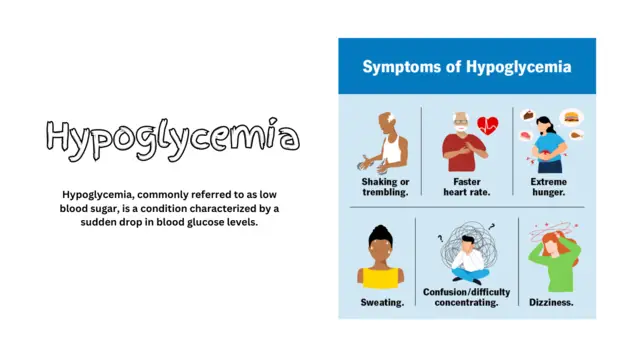Hypoglycemia, commonly referred to as low blood sugar, is a condition characterized by a sudden drop in blood glucose levels. While mild to moderate hypoglycemia can typically be managed with glucose tablets, juice, or other easily accessible sources of sugar, severe hypoglycemia requires immediate attention and intervention to prevent serious complications. In this article, we’ll explore what you need to know about emergency response to severe hypoglycemia.
Recognizing Severe Hypoglycemia
Severe hypoglycemia occurs when blood sugar levels drop dangerously low, usually below 54 milligrams per deciliter (mg/dL). It can happen quickly and without warning, particularly in individuals with diabetes who are using insulin or certain medications to manage their blood sugar levels.
Recognizing the signs and symptoms of severe hypoglycemia is crucial for prompt intervention. These may include:
- Confusion or disorientation
- Seizures or convulsions
- Loss of consciousness
- Inability to eat or drink
- Pale skin
- Sweating
- Rapid heartbeat
If you suspect someone is experiencing severe hypoglycemia, it’s essential to act quickly to prevent further complications.
Emergency Response Steps
- Check Blood Glucose Levels: If possible, check the person’s blood glucose level using a blood glucose meter. This will confirm whether hypoglycemia is the cause of their symptoms.
- Administer Rapid-Acting Carbohydrates: If the person is conscious and able to swallow, give them a fast-acting source of carbohydrates such as glucose tablets, glucose gel, fruit juice, or regular soda. Avoid foods or drinks with fat, as they can slow down the absorption of sugar.
- Glucagon Injection: If the person is unconscious or unable to swallow, administer a glucagon injection if available. Glucagon is a hormone that helps raise blood sugar levels quickly. Follow the instructions provided with the glucagon kit carefully.
- Call for Emergency Medical Assistance: If the person does not respond to treatment within 10-15 minutes, or if their condition worsens, call for emergency medical assistance immediately. Severe hypoglycemia can be life-threatening if left untreated.
- Recheck Blood Glucose Levels: After administering treatment, recheck the person’s blood glucose levels periodically to ensure they remain stable. Follow up with a healthcare professional for further guidance and evaluation.
Preventing Severe Hypoglycemia
While emergency response is crucial in cases of severe hypoglycemia, prevention is equally important. Individuals with diabetes can take several steps to reduce their risk of experiencing severe hypoglycemia, including:
- Regularly monitoring blood glucose levels
- Following a balanced diet with regular meals and snacks
- Adjusting insulin or medication doses as prescribed by a healthcare professional
- Being aware of and managing factors that can affect blood sugar levels, such as exercise, stress, and illness
- Carrying fast-acting sources of sugar at all times for quick treatment of hypoglycemia episodes
By staying informed about the signs and symptoms of severe hypoglycemia and knowing how to respond effectively in an emergency, individuals with diabetes and their caregivers can help ensure optimal management of this potentially life-threatening condition. Remember, prompt action can make all the difference in saving lives and preventing serious complications.


